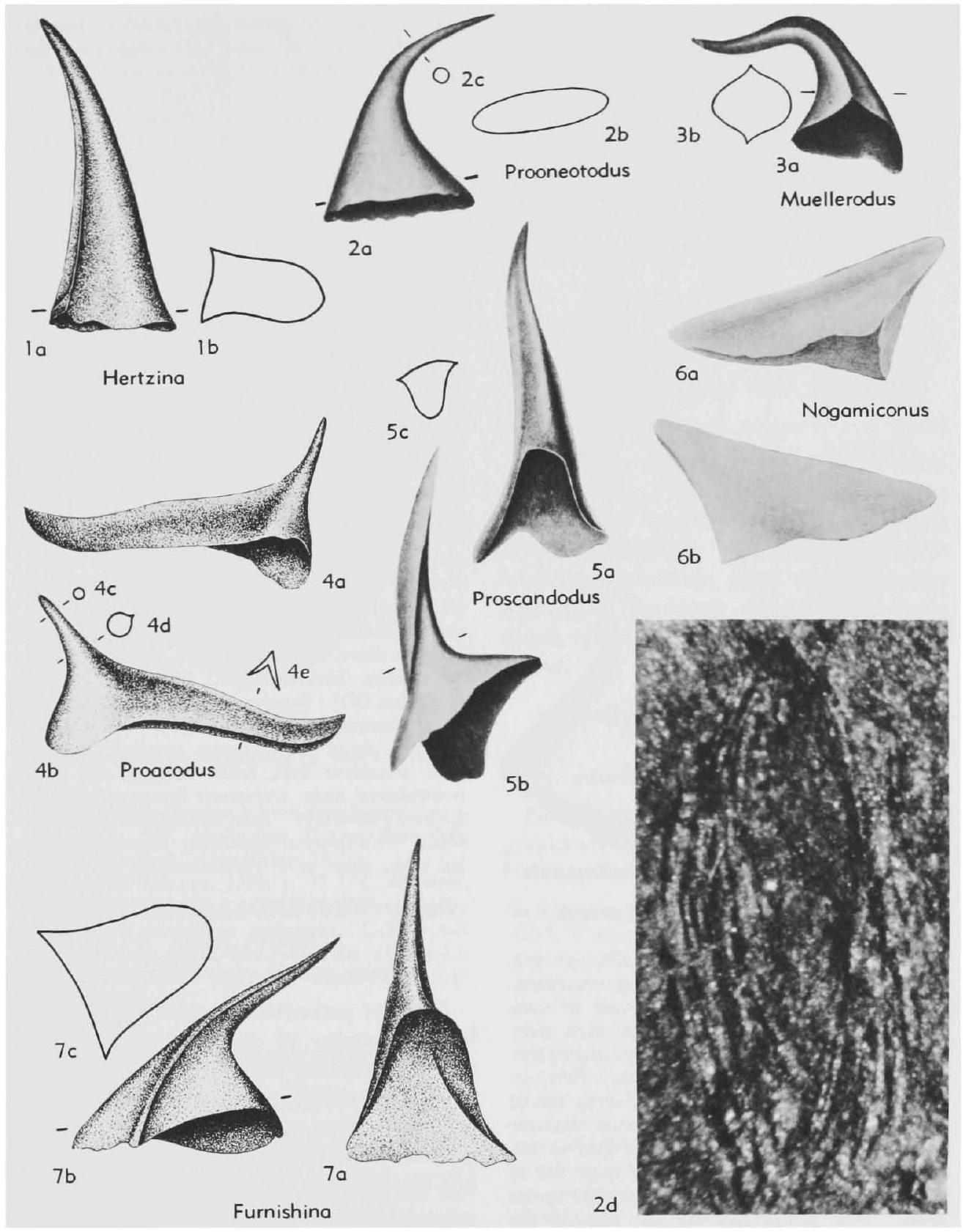Welcome to the Treatise on Invertebrate Paleontology!
Please enter a genera name to retrieve more information.

Furnishina
Classification
Phylum:
Conodonta
Class:
Conodonta
Order:
Paraconodontida
Superfamily:
Furnishinacea
Family:
Furnishinidae
Formal Genus Name and Reference:
Furnishina MÜLLER, 1959, p. 451
Type Species:
F. furnishi, OD
Images
(Click to enlarge in a new window)
Fig. 64,7. *F. furnishi, holotype, U. Cam. (Gallatin Ls.), USA (Wyo.); 7a-c, post., lat. views, transv. sec., X 80 (Muller, 1959).
Synonyms
Geographic Distribution
N.Am. (Utah-Nev.-Okla.-Texas-Alberta)
Age Range
Beginning Stage in Treatise Usage:
M.Cam.
Beginning International Stage:
Cambrian Stage 3
Fraction Up In Beginning Stage:
0
Beginning Date:
521
Ending Stage in Treatise Usage:
L.Ord.
Ending International Stage:
Floian
Fraction Up In Ending Stage:
100
Ending Date:
471.26
Description
Asymmetrical coniform elements, proclined to erect, some bent laterally; base large and broadly expanded, with distinct cusp above base; basal cavity large and deep; anterior face flat, posterior and anterolateral carinae resulting in triangular cross section, cross section in some modified by secondary lateral carinae.
References
Museum or Author Information
Classification
Phylum:
Conodonta
Class:
Conodonta
Order:
Paraconodontida
Superfamily:
Furnishinacea
Family:
Furnishinidae
Formal Genus Name and Reference:
Furnishina MÜLLER, 1959, p. 451
Type Species:
F. furnishi, OD
Images
(Click to enlarge in a new window)
Fig. 64,7. *F. furnishi, holotype, U. Cam. (Gallatin Ls.), USA (Wyo.); 7a-c, post., lat. views, transv. sec., X 80 (Muller, 1959).
Synonyms
Geographic Distribution
N.Am. (Utah-Nev.-Okla.-Texas-Alberta)
Age Range
Beginning Stage in Treatise Usage:
M.Cam.
Beginning International Stage:
Cambrian Stage 3
Fraction Up In Beginning Stage:
0
Beginning Date:
521
Ending Stage in Treatise Usage:
L.Ord.
Ending International Stage:
Floian
Fraction Up In Ending Stage:
100
Ending Date:
471.26
Description
Asymmetrical coniform elements, proclined to erect, some bent laterally; base large and broadly expanded, with distinct cusp above base; basal cavity large and deep; anterior face flat, posterior and anterolateral carinae resulting in triangular cross section, cross section in some modified by secondary lateral carinae.
